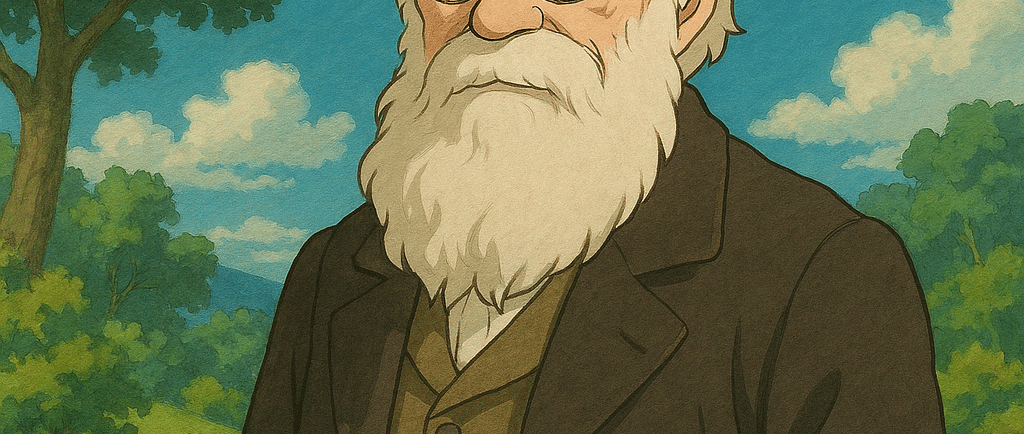Charles Darwin: The Relentless Spirit of Curiosity


In the grand tapestry of scientific discovery, few names shine as brightly as Charles Darwin. He wasn’t a prodigy in childhood, nor did he possess the grandeur of a traditional hero. Yet, his quiet determination, insatiable curiosity, and courage to challenge the norm changed the way humanity views itself forever.
Born on February 12, 1809, in Shrewsbury, England, Darwin grew up in a world where religion and traditional beliefs dictated most of life’s explanations. As a young man, he showed more interest in collecting beetles and observing nature than in formal education. He even dropped out of medical school, much to his father’s dismay. But sometimes, greatness begins not with certainty—but with wonder.
The defining moment of Darwin’s life came in 1831 when he set sail on the HMS Beagle. What began as a five-year voyage would become the cornerstone of evolutionary science. He explored the coasts of South America, the Galápagos Islands, and countless ecosystems, documenting life in all its diversity. But unlike most, Darwin didn’t just observe—he questioned. Why did finches have different beaks on different islands? Why did some species seem to fade away, while others flourished?
His questions led to a revolutionary idea: evolution by natural selection. It was a concept so bold and ahead of its time that Darwin hesitated for more than 20 years before publishing his findings. In 1859, his book On the Origin of Species finally emerged—an earthquake in the world of science. It suggested that all life shares a common ancestry and evolves through survival of the fittest. The world would never be the same again.
Darwin faced harsh criticism, ridicule, and resistance from religious and scientific communities alike. Yet, he remained calm and focused—not fighting with words, but with evidence, patience, and clarity. His strength wasn’t loud. It was persistent.
What makes Darwin truly inspirational isn’t just his theory. It’s his mindset. He taught us that progress doesn’t always come from answers—it comes from asking the right questions. He showed that it’s okay to doubt, to be uncertain, to challenge deeply held beliefs, and to wait for truth to unfold.
In a world that often celebrates overnight success and instant gratification, Darwin reminds us of the power of slow, steady, thoughtful work. He reminds us that it’s okay to think differently—and that one person, driven by curiosity, can shift the course of human history.
So whether you’re a scientist, student, artist, or dreamer—remember Darwin. Not just as the father of evolution, but as a symbol of what it means to believe in your questions, to stay true to your search for truth, and to trust in the quiet power of your passion.
